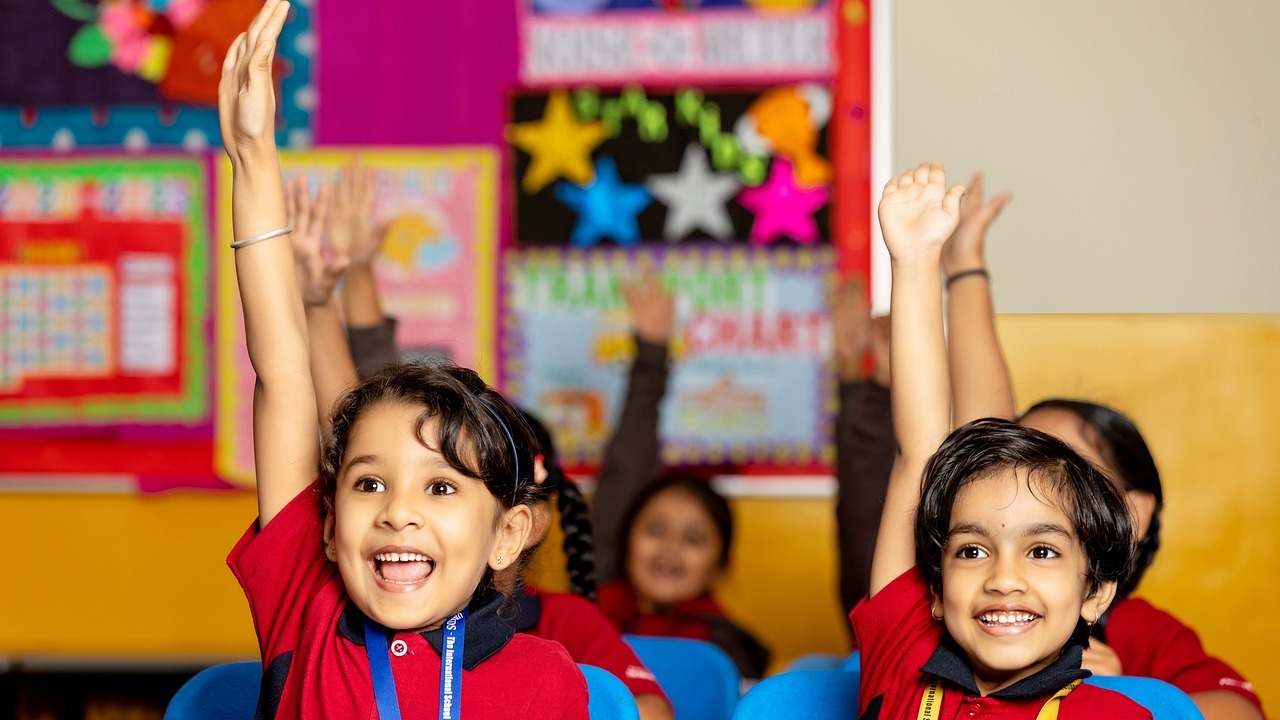Adaptation to school is one of the complex processes tied to the physical and psychological adaptation of the child to new social conditions within the educational institution and the transition to systematic schooling. The duration of the period depends on many factors and takes 3-6 months on average. Especially long-term adaptation can be during the transition from preschool to first grade.
As a rule, the first grade is an important stage in the life of a student. With proper adaptation, the entire educational process will proceed positively. It will also motivate you to acquire new knowledge. The transition to the first class makes it easy to join a new team and make friends. But it is difficult for a child to get used to school after preschool. Firstly, this is due to the fact that at preschool age the child did not require special discipline, the classes were held in the form of a game, there was time to run around, and an hour was allotted for sleep and rest.
In the first grade, the usual mode of life changes, and children have to adapt to the changed conditions. The child falls under the influence of factors that collectively affect his psyche:
- new daily routine;
- restrictions on outdoor games at school;
- the need to build relationships with classmates and the teacher;
- new environment and unusual duties for the child.
If you want to make sure your child is safe, use a motion tracking app. Install KidsFinder on your child's smartphone and see where they are.
Adaptation to school is more difficult for children with individual characteristics of the nervous system. The risk group includes:
Hyperactive kids. Their concentration of attention is reduced, due to the peculiarities of the psyche, they need to constantly move, and sitting through a whole lesson at the desk for them is a real feat. Such first-graders most often violate the order at school and the first months of study practically do not learn new material.
Children with high fatigue threshold. This may be due to individual personality traits or chronic diseases. Schoolchildren with increased fatigue cannot concentrate on completing tasks for a long time, which reduces their academic success.
Gifted first-graders. Before entering school, these preschoolers already have a vast store of knowledge, and the first months at school can be simply boring for them. Because of this, they can indulge, not listen to teachers. It is these first-graders who are often recommended to switch to an individual training program, including remotely.
Problems of adaptation at school may be associated with the increased demands of parents. Do not expect the impossible from a child - addiction can take more than one month, and this is considered normal.
Ways to adapt a child to school
In the first months of study, the child will have to get used to many changes in life: the school regime, communication with classmates and teachers, new knowledge, etc. Therefore, adaptation to school must be assessed by a combination of indicators. We can conditionally distinguish the following types of adaptation:
- organizational - this is the ability to adapt to a new routine, duties, school rules;
- educational and motivational - the formation of a desire to learn, to master new knowledge and skills;
- psychological - normalization of the emotional well-being of the baby in different school situations, adequate perception of the child's new social role for him as a student;
- social - the formation of adequate behavior in a new social environment, the establishment of normal relations with adults and peers.
Since everyone gets used to new circumstances in different ways, the student may have deviations in various indicators. For example, he may readily acquire new knowledge, but not make friends or have a hard time enduring the school regime. In this case, parents should understand that good grades alone do not mean normal adaptation to school. Deviations in any of the above indicators indicate violations of adaptation to school life. Therefore, attention must be paid to each factor.
Only with normal indicators in all aspects can we talk about a good adaptation of the child to school life.
How quickly will the student adjust? It depends on various factors:
- character traits;
- the level of complexity of the educational program;
- family situation;
- the presence of external stress factors;
- the degree of preparedness of the child for school, etc.
Due to the fact that the pace of adaptation is individual, the child needs attention and all possible assistance from adults. Failure can lead to the development of complexes and fears in childhood, low grades and other negative consequences. It is necessary to understand the full responsibility of the adaptation period, which is important for the child's mental development.
How to Help a First Grader: Some Simple Tips for Beginning Teachers and Parents
Daily regime. An extension is a forced phenomenon, since many parents work, and not everyone has grandparents who are ready to take care of their grandchildren. But you can find a way out: for example, hire a familiar pensioner who will look after the child.
Firstly, it is desirable for a first-grader to organize daytime sleep in order to reduce the load and prevent overwork.
Secondly, homework (which many teachers cannot refuse) should be done not in the late evening, before going to bed, but in the middle of the day.
Thirdly, it is significant that the child has personal time to watch cartoons, walk and play.
These tips will help your child adapt to a new life much faster and more efficiently.
Features of adaptation in fifth graders
For fifth graders, as well as for first-graders, the transition to a new environment can also be difficult. One of the main difficulties is that children have to adapt to the requirements of different teachers. It is good if the actions of all teachers are coordinated, and the requirements are the same. But, alas, this is rare.
What happens to the child? And how to help him survive the period of adaptation easily and painlessly?
First, the child's self-esteem is tested for strength. Still, now it is evaluated by several people at once. It is important to support the child's self-confidence, to show him your care and attention.
It should not be surprising that academic performance at the beginning of the fifth grade drops significantly. It's just that the kids aren't used to the new learning environment yet. Therefore, do not rush to scold for "deuces" or for a bunch of comments in the diary. Perhaps the problem is not laziness or unwillingness to learn, but the fact that the child is unable to establish a relationship with the teacher.
Secondly, children learn to adjust and change their behavior depending on the situation and the person with whom they communicate. Parents simply need to maintain close contact with the class teacher in order to be aware of how the child behaves in different lessons. And it is advisable for the class teacher to consult with the first teacher of the class more often in order to study the characteristics of the character of each student.
Thirdly, social activity is increasing. 9-11 years old is the age when the child is increasingly getting to know the world that is outside of school and at home. And, if in the primary classes the students still stick together, now the class is divided into separate groups of students. It is good if parents know their child's friends. You can invite a company home, arrange joint holidays for children, organize, for example, a common trip to the cinema or a trip to nature.
And if you don't know how your child spends his time and with whom he communicates, installing the KidsFinder app will help you find out this information. The application has wide functionality that allows you to track the location of the child, and if necessary, turn on wiretapping to find out what is happening around.
If you want to facilitate the adaptation of the child, it is important for you to properly plan the daily routine, think about what to do with your free time. Direct the interest of the child, think in which circles or sections he will be interested. Hobbies are a great thing, and a well-chosen hobby can not only protect a child from the negative influence of society, but also help to reveal the child’s talents, which will invariably affect his self-esteem.


